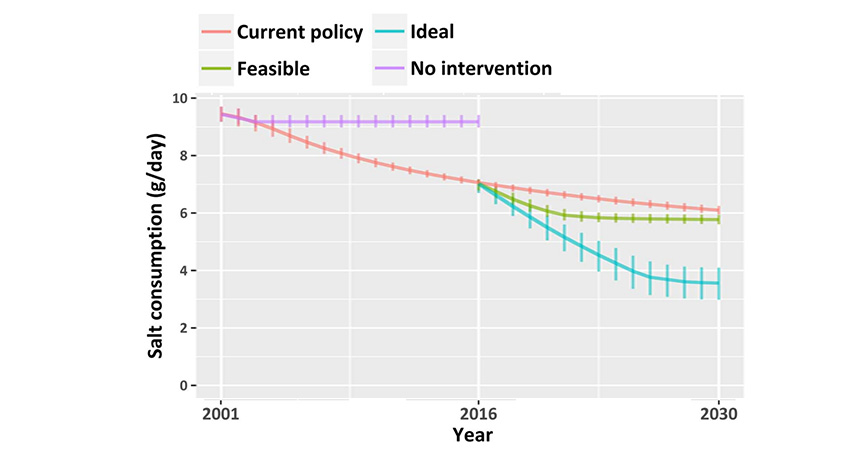Action needed to improve salt use behaviour and fruit and vegetable consumption across seven low- and- middle income countries

A recent study conducted by McKenzie BL et al published in Nutrition Journal, assessed salt use behaviour, fruit and vegetable consumption and the type of oil and fat used in cooking, and the association of these behaviours with cardiovascular disease risk factors, across seven low- and middle-income countries. From the sample of 24,332 adults […]
Impact of salt reduction on health outcomes – modelling study in Cameroon

A modelling study by Aminde LN et al investigated the potential health impacts of reducing salt intake by the World Health Organization’s (WHO’s) recommended 30% relative reduction in Cameroon. The model predicted a decreased lifetime incidence of ischaemic heart disease, haemorrhagic strokes, ischaemic strokes and hypertensive heart disease, and decreased mortality rates from these causes. […]
Cost savings and health gains estimated from achievement of the US Food and Drug Administration voluntary sodium reformulation targets

Pearson-Stuttard J et al recently published a paper in PLoS Medicine estimating the health and economic effects of the proposed US Food and Drug Administration (FDA) voluntary sodium reformulation. The US IMPACT Food Policy Model was used to estimate cost-effectiveness and health impact of three scenarios; 100% compliance with 10-year reformulation targets, 50% compliance with […]
Impact of UK sodium reduction policies on disease burden and equity

A recent study by Kypridemos et al published in BMJ Open (2017) found that sodium reduction policies in the UK are effective in reducing the burden of cardiovascular diseases (CVD) and gastric cancer (GCa), but the effects are disproportionate across socioeconomic groups. The study estimated that the UK strategy resulted in about 52,000 fewer new […]